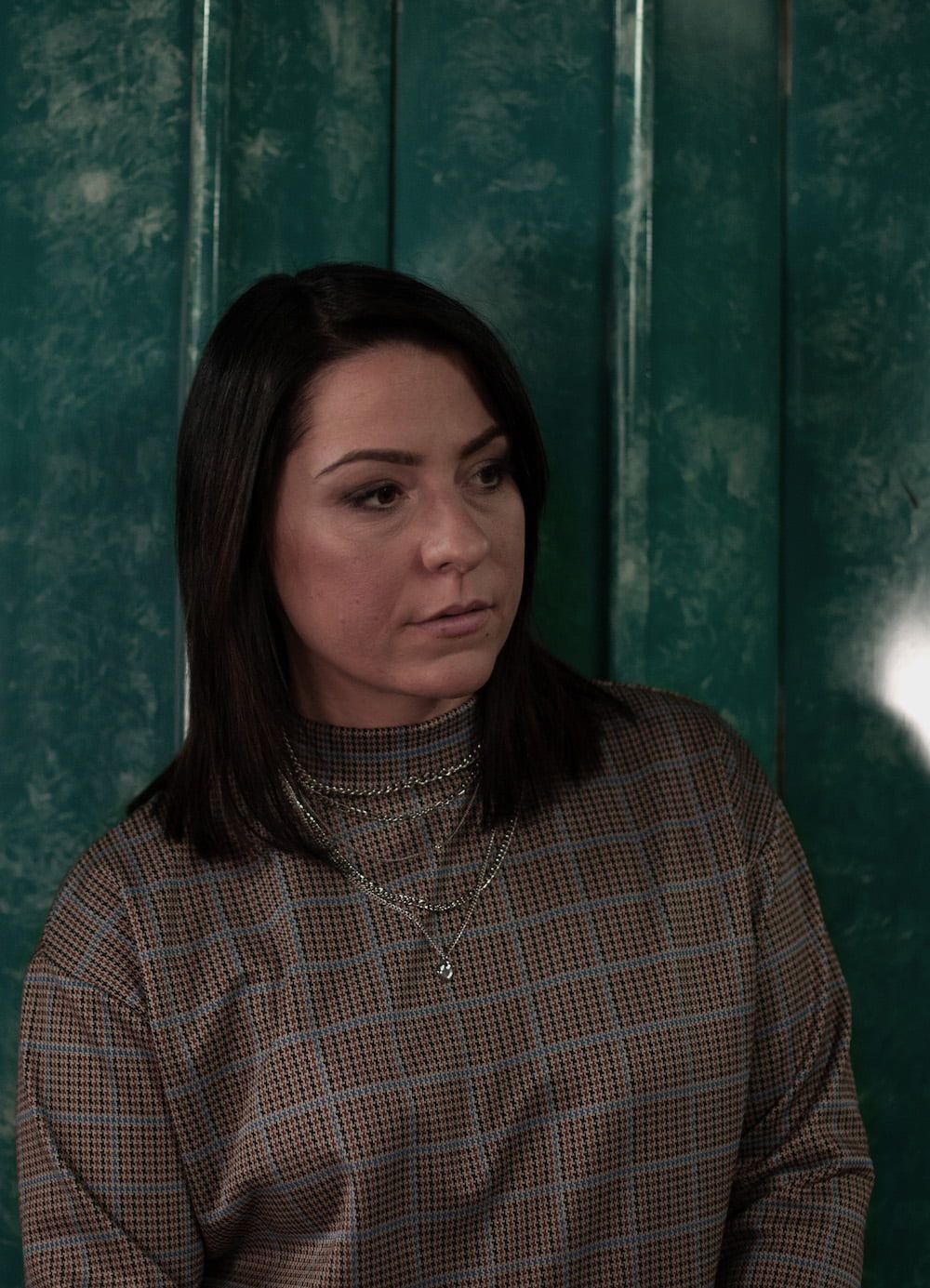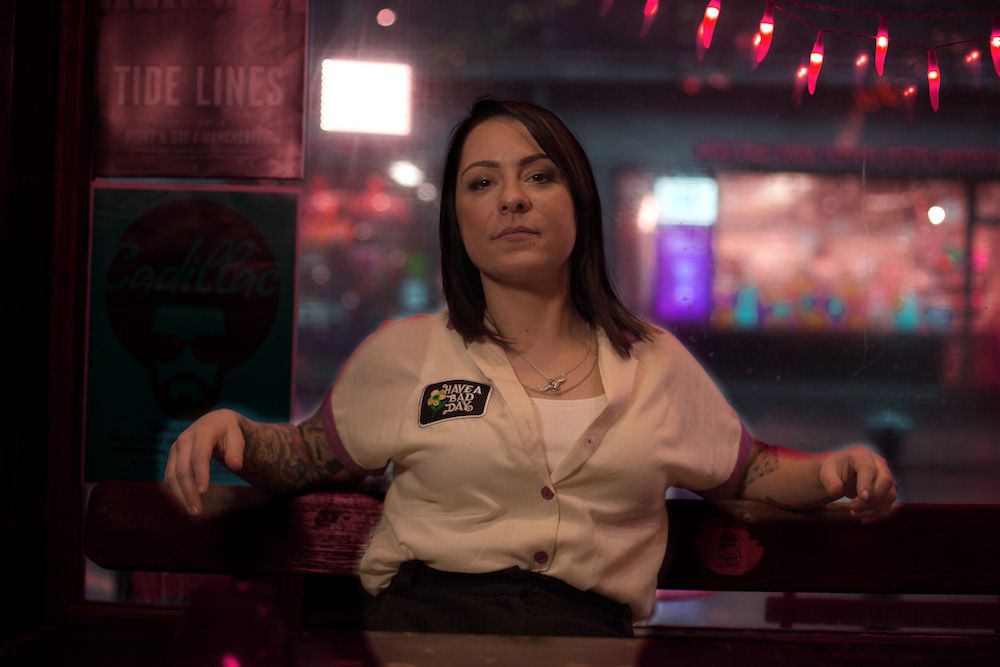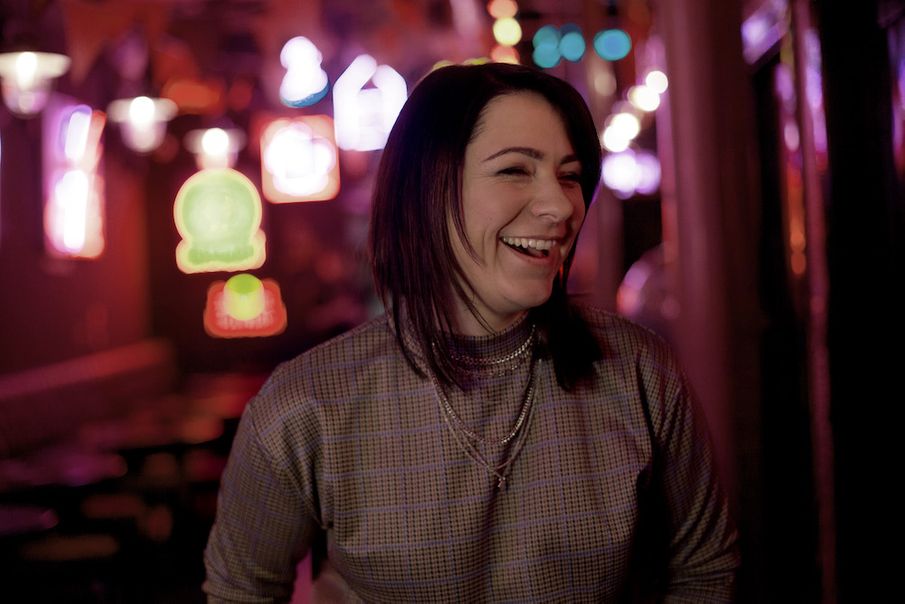Since being thrust into the spotlight on The X Factor seven years ago, Lucy Spraggan has truly been on an emotional journey. From anxiety, depression, and contemplating suicide, Lucy is now in the most confident place in her life
At a white-clothed table in the Mirror Room at London’s Rosewood Hotel, surrounded by floor-to-ceiling mirrors, it’s somewhat fitting that singer-songwriter Lucy Spraggan is discussing reflection.
Her latest album, Today Was a Good Day, features a collection of from-the-heart tracks, pinpointing how she feels about life right now: grounded, content and, more than ever before, emotionally together.
“I always thought that I was a confident person until now, and I know that this is what confidence feels like,” smiles Lucy, who spent the past year committed to eating more nutritious food, exercising, and tackling an unhealthy relationship with alcohol.
Finding overnight fame on The X Factor in 2012 heightened Lucy’s existing issues with anxiety and depression. Then, within two years of appearing on the talent show, she contemplated suicide.

Lucy Spraggan
Lucy later sought cognitive behavioural therapy (CBT) and is rebuilding her life alongside her wife Georgina Gordon, who she married in June 2016. She has weekly talking therapy, and for the past year has fostered 12 children with Georgina, with the couple recently moving into their dream home in rural Cheshire.
In this open and honest interview, Lucy reveals her daily practises for positive mental health, explains why TV bosses have a responsibility to protect the reality stars they create, and shares her pride at being an LGBTQ+ role model.
Lucy, what inspired you to make positive changes in your life?
I’ve been working so hard for seven years. Since the show, I haven’t stopped touring and releasing records. I never allowed time for myself. But now I’m living more healthily. My life was one big party, surrounded by people that didn’t like me that much, so I didn’t really like myself. I was getting wasted, eating hangover food, [and] drinking so I didn’t have anxiety.
Were you concerned about your mental health, going on such a huge show?
Music is my life so I didn’t even think about it. But the next day I was mobbed and it went straight to my head. I went to sleep with one reality, and woke up with a completely different one.
On Instagram you recently referred to seeking ‘proper help’?
I have talking therapy once a week and if I’m out the country, I FaceTime her. [My therapist] said to me once: “You’re telling me sad things, but you’re smiling.” It’s a Western thing, we love to plaster over our emotions, and I’ve realised that I do that.
I’ve always been susceptible to mental illness – depression, anxiety and I contemplated suicide in 2014 – and a lot of that happened after The X Factor. Two people from Love Island have completed suicide, and all I can say is I’m surprised there haven’t been more because the fame is overnight. Those TV companies are responsible, in part, because there’s no after-care and that’s unacceptable.
How can reality stars be better protected?
For me, it's about reflection, more so than meditation. It's about feeling grounded
They should have at least a year of compulsory therapy. [People say]: “You wanted to be famous.” OK, I wanted to be successful, but that doesn’t mean it wasn’t awful. This country has a bit of a tear-down culture. We like to see people at the top, but love it more when they fall.
Your track ‘Breathe’ is about anxiety over a lack of sobriety. Have you had a problem with alcohol in the past?
I’ve always had an issue with alcohol; I think that might mean I was probably an alcoholic. One glass of wine would turn into being at GAY until 4am. I was using it as an emotional outlet, so I never had to feel reality because I was doing a show, having a beer, doing a show, having a beer. I wasn’t a very nice person for a long time.
Do you still drink?
I [do], but it’s not just one big party. This is my career. Back then, I was letting people control everything. Now I look at the accounting every day, how many records and tickets we’re selling. Alcohol to get rid of anxiety induces anxiety, then you get into a perpetual cycle. Instead I try to walk, breathe and get away.
Do you like yourself more now?
My self-esteem is in a better place, and that reflects in this album. I’m just trying to be a better person. Me and my wife have been foster carers for a year. We’re trying to develop ourselves, but also what’s going on around us. There’s loads of really awful stuff in the world at the moment, but then if you look a little closer, you can find good things, too.
How do you emotionally help vulnerable children in your care?
You just have to give them kindness, and listen. We’ve been told these kids are going to kick off, and smash things. Not once have we even had a raised voice in our house. I was arrested a few times and excluded [as a child]. I was a troublemaker, so I feel like I understand those like that.

How do you feel thinking back to when you considered suicide?
I can see myself sitting in that car with my dog in the passenger seat, crying hysterically. I’d bought a wanky fancy car because I’d just been on The X Factor and didn’t know who I was. I had my foot to the floor and thought: ‘I’m going to drive into the central reservation.’ Then my dog sneezed. I slammed on the brake, parked on the hard shoulder, and thought: ‘I’ve got to sort my life out.’
What changed after that?
I went straight to a therapist and told her I needed to speak to someone. That’s the moment I realised I needed to kick [into touch] all the things I was doing [wrong]. I met my wife quite soon after that.
They say you shouldn’t build happiness around someone else...
This is something I’m tackling in therapy. I use people as crutches and I shouldn’t, because you’ve got to be happy in yourself.
How do you stay mentally healthy?
I work out a lot, and go walking. I take the dog, and try to get those 10,000 steps. I’m the worst person in the world at meditation. The album is called Today Was a Good Day because I’m trying to reflect more. Often you think ‘today was shit’, but rarely ‘today was alright’. For me it’s about reflection, more so than meditation – feeling grounded.
How does it feel to be an LGBTQ+ role model?
It’s nice that people perceive me that way, and for young gay people because I live my life as an openly gay woman but… I’m just a woman. I was a little boy when I was younger, I called myself Max. I came out when I was 14, because everybody knew I was a lesbian anyway.
What do you hope to pass on to the kids in your care?
Music. Our house is full of instruments – they’ll go on the piano, I’ll go on the guitar. We sing ‘Old MacDonald Had a Farm’ and they can be whatever they want – gay, straight, rainbow. They can be a unicorn, as long as they’re not hurting anybody else.
Lucy Spraggan's new album 'Today Was a Good Day' is out now on Cooking Vinyl.


Comments